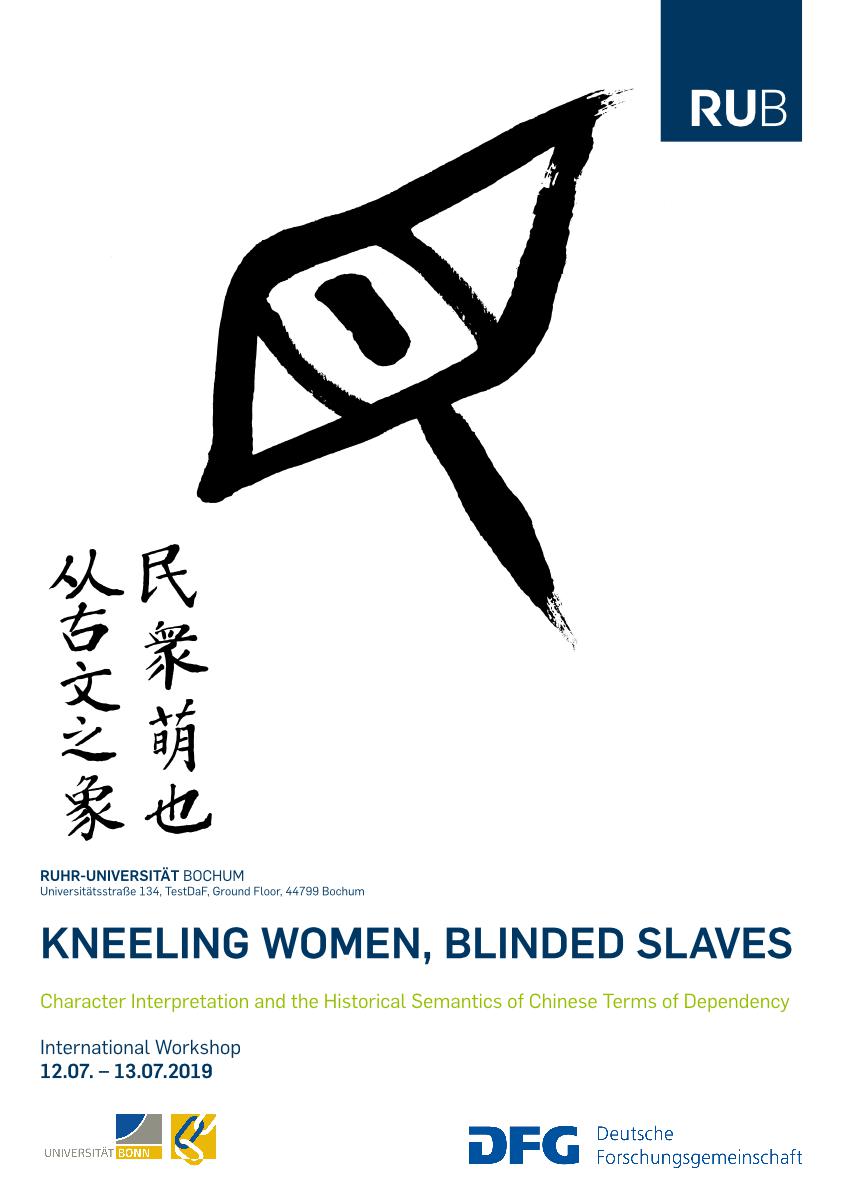International Workshop of the SFB1167 "Power and Rulership - Premodern Configurations in a Transcultural Perspective", University of Bonn
In the mid-fourth century B.C.E., the pre-imperial state of Qin 秦 implemented a series of thorough-going bureaucratic reforms, which established the preconditions for its rise in the following centuries and left their imprint on the constitution of post-221 B.C.E. imperial China. They were initiated by the Legalist political theoretician and advisor Shang Yang 商鞅 (d. 338 B.C.E.). He was commissioned to replace the traditional political order with a centralized state and a system of recruitment based on meritocratic principles. Our workshop will discuss this transformation from the perspective of the Book of Lord Shang (Shang Jun Shu 商君書), which can be traced back to Shang Yang and his disciples. It provides valuable insights into the theory and practice of Macht and Herrschaft in early China. The political concepts of Shang Yang will be examined from a transcultural perspective and related to traditions of political thought in other premodern societies.
| Friday, November 16, 2018 | |||
|---|---|---|---|
| 12.00 ‐ 12.15 | Christian Schwermann | Welcome Address and Introduction | |
| 12.15 ‐ 13.00 | Christoph Harbsmeier | Some Reflections on the Current State of Shang Jun Shu Studies | |
| 14.15 ‐ 15.00 | Yuri Pines | Waging a Demographic War: The "Attracting the People" Chapter of the Book of Lord Shang | |
| 15.00 ‐ 15.45 | Maxim Korolkov | (Political) Community: Grassroot Socio-Territorial Units in Ideology and Practice of Early Chinese Empires | |
| 16.15 ‐ 17.00 | Elisa Levi Sabattini | The Revision of Popular Customs: Modeling Societies According to the Shang Jun Shu | |
| Saturday, November 17, 2018 | |||
| 9.15 ‐ 10.00 | Hans van Ess | The First Chapter of the Shang Jun Shu and Its Relationship to the Shiji | |
| 10.00 ‐ 10.45 | Konrad Vössing | Unity among 'the Four Emperors' (293‐306 AD) ‐ a Revolution of Rulership in the Roman Empire | |
| 11.15 ‐ 12.00 | Kai Vogelsang | Concepts of Rulership in the Discourse of Political Realism | |
| 12.00 ‐ 12.45 | Paul Goldin | Classical Chinese Words for 'Power' | |
| 14.00 ‐ 14.45 | Heiner Roetz | Wrap-Up | |
Links
International Workshop of the Bonn Center for Dependency and Slavery Studies
Semantic analysis based on character interpretation once formed an indispensable part of traditional Chinese lexicography and has led to many fanciful claims and speculations. Thus, the character for the word nü 女, "woman", has been argued to depict a kneeling woman, a posture that reflects women's generally inferior position in pre-modern Chinese society. Or Guo Moruo 郭沫若 (1892–1978) once came to the conclusion that the term min 民, "people", must originally have designated slaves who had been punished by having had one of their eyes gouged out.
Several leading international experts in the field of Chinese paleography and historical semantics have been invited to address the question of correlations between semantic value and orthographical form of Chinese characters with regard to the semantic field of asymmetrical dependency in Classical Chinese.
The workshop will provide valuable insights into the traditional Chinese social construction of reality and help to deconstruct existing concepts and narratives of "freedom" and "slavery".
| Friday, July 12, 2019 |  |
||
|---|---|---|---|
| 10.00 ‐ 10.15 | Christian Schwermann | Welcome Address and Introduction 歡迎詞 |
|
| 10.15 ‐ 11.00 | Axel Schölmerich Christian Schwermann |
Inauguration of the Center for the Study of Traditional Chinese Cultures 中國傳統文化研究中心揭牌儀式 |
|
| 11.00 ‐ 11.45 | Liu Zhao 劉釗 | 古文字字形與詞義的關係 The Interrelation between Form and Meaning of Ancient Chinese Characters |
|
| 11.45 ‐ 12.30 | Li Shoukui 李守奎 | 漢字闡釋的若干問題 Issues in the Explanation of Chinese Characters |
|
| 13.45 ‐ 14.30 | Wang Ping 王平 | 西周金文賞賜品中的‘人’ 人 (ren, „people“) as Gifts in Western Zhou Bronze Inscriptions |
|
| 14.30 ‐ 15.15 | Wang Guiyuan 王貴元 | 漢語詞彙的四節遞進與漢字 Chinese Characters and the Four Stages in the Development of the Chinese Lexicon |
|
| 15.45 ‐ 16.30 | Li Yunfu 李運富 | ‘奴康’類詞語的形義關聯 Relations between Form and Meaning in the Semantic Field of Slavery |
|
| 16.30 ‐ 17.15 | He Yuhua 何余華 | 新出秦簡牘與古書詞義合證擧隅 An Exemplary Collation of Word Meanings in Traditional Texts and in Newly Excavated Manuscripts of the Qin Dynasty |
|
| Saturday, July 13, 2019 | |||
| 9.15 ‐ 10.00 | William G. Boltz | The Myth of the Kneeling Woman 跪女形字的迷思 |
|
| 10.00 ‐ 10.45 | Wolfgang Behr | Ears Wide Shut: On jianyi and the Non-Suppressibility of Latent Semantics in Chinese Word and Character Formation ‘大開耳戒’:‘兼意’與漢語構詞造字中潛在語義的不可抑制性 |
|
| 11.15 ‐ 12.00 | Ken-ichi Takashima 高嶋謙一 | Paleography, Historical Phonology, and Historical Semantics: “Kneeling Women with Wrists Crossed” and “Slaves with Eye Gouged” 古文字學,歷史音韻學及歷史語義學:‘雙手交叉之跪女’與‘單眼刺瞎之盲奴’ |
|
| 12.00 ‐ 12.45 | Ulrich Lau | Character Interpretation and Semantics of Chinese Terms Used for Different Categories of Convicts in Qin and Early Han Time Manuscripts 秦漢早期簡牘所見囚犯類術語的語義及其文字解釋 |
|
| 14.00 ‐ 14.45 | Francoise Bottéro | Bodily Submission: The Chinese Art of Bowing and Kneeling 屈伏的身姿:中國跪拜禮藝術 |
|
| 14.45 ‐ 15.30 | Christoph Harbsmeier | The Cultural History of the Concept of chen 臣 說‘臣’的範疇文化史 |
|